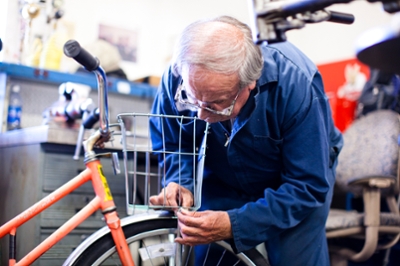Improving Memory
Imagine a prosthetic that can help your brain retrieve lost memories. For patients and their families struggling with Alzheimer’s disease and other neurological conditions, this may sound like a dream come true.
Neuroscience has made great progress in understanding memory but, currently, there is no way to restore it. Supported by a grant from UCRI’s Multicampus Research Programs and Initiatives (MRPI), a team of UC neuroscientists, engineers and computer scientists is leveraging existing knowledge about how memory works to create a brain implant that can recover some memory function in patients with severe impairment.
Led by UC Irvine neuroscientist Bruce McNaughton, the team is looking for a way to restore memory through stimulating connections in the brain with a wireless, implantable device. If the prototype works, it will be an important first step in developing a fully functional memory prosthetic that could be used to improve quality of life for patients suffering from conditions such as Alzheimer’s disease, epilepsy and certain kinds of trauma.
This high-risk, high-reward project could be transformative for improving the lives of California’s aging population. According to McNaughton, the MRPI funding has been “a wonderful way of getting different campuses to work together on an innovative scientific idea that might not be seen as ready for ‘prime time’ by more traditional funding sources.”
Return to MRPI News about Improving Memory
